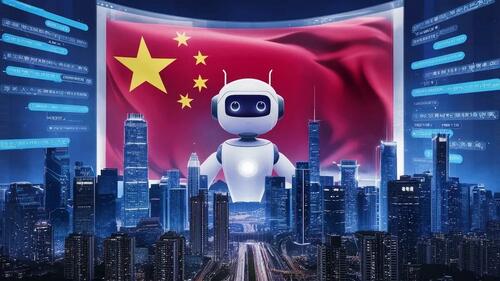Chinese authorities are quietly instructing top artificial intelligence entrepreneurs and researchers to avoid traveling to the United States, signaling Beijing’s intensifying focus on AI as both an economic and national security priority, according to the Wall Street Journal, citing people familiar with the matter.

The guidance, while not an outright ban, reflects concerns that overseas trips by leading AI experts could lead to the disclosure of sensitive information about China’s technological advancements. Officials also fear that executives could face detainment, recalling the case of a Huawei executive arrested in Canada at Washington’s request during the first Trump administration, these people said.
The move underscores the deepening technological divide between the two global powers. China’s AI companies - including DeepSeek and Alibaba - are emerging as formidable competitors to U.S. leaders like xAI, OpenAI and Google. After the Biden administration enforced Trump-era semiconductor restrictions, Beijing is pressing its tech sector to align more closely with state interests and avoid potential vulnerabilities.
As Beijing advances its strategy of technological self-sufficiency, authorities in China’s major innovation hubs - including Shanghai, Beijing, and Zhejiang - have discouraged executives in AI and other critical fields from traveling to the U.S. or its allies unless absolutely necessary, sources said.
Entrepreneurs who do travel are expected to report their plans before departure and provide post-trip briefings on their activities and meetings, the sources added. The increased scrutiny is being applied not just to AI, but also to other strategically sensitive industries such as robotics.
Recent cases illustrate the impact of this policy. DeepSeek founder Liang Wenfeng declined an invitation to an AI summit in Paris earlier this year following guidance from authorities, sources familiar with the matter said. Similarly, the founder of another prominent Chinese AI startup abandoned plans for a U.S. visit last year under similar instructions.
On February 17, Beijing convened a meeting of the country’s most prominent business figures, during which Chinese leader Xi Jinping emphasized the importance of national duty in technology development. Among those in attendance were DeepSeek’s Liang and Wang Xingxing, the founder of humanoid robotics firm Unitree Robotics.
For China’s tech elite, open association with the U.S. or high-profile American figures carries risks. Such interactions could invite scrutiny from Chinese regulators or provoke government ire for deviating from official policy.
This dynamic was highlighted in 2017 when Alibaba co-founder Jack Ma met then-President-elect Donald Trump. Trump praised Ma as a "great entrepreneur," but the meeting, which preceded any formal engagement between top Chinese officials and the incoming U.S. administration, raised concerns in Beijing. Years later, Ma and his business empire came under intense regulatory pressure from Chinese authorities.

Despite these tensions, some level of U.S.-China tech interaction continues. At CES 2024 in Las Vegas, Chinese firms, including Unitree Robotics, maintained a strong presence, underscoring the ongoing commercial ties between the nations’ tech sectors.
Xiaomeng Lu, a senior analyst at Eurasia Group specializing in emerging technologies, suggested that Beijing’s travel guidance may stem from fears of talent loss or corporate buyouts by American firms. "For the tech sector, brain drain can have a devastating effect on a country," Lu said. "The initial signal is: Stay here, don’t run away."
Loading...